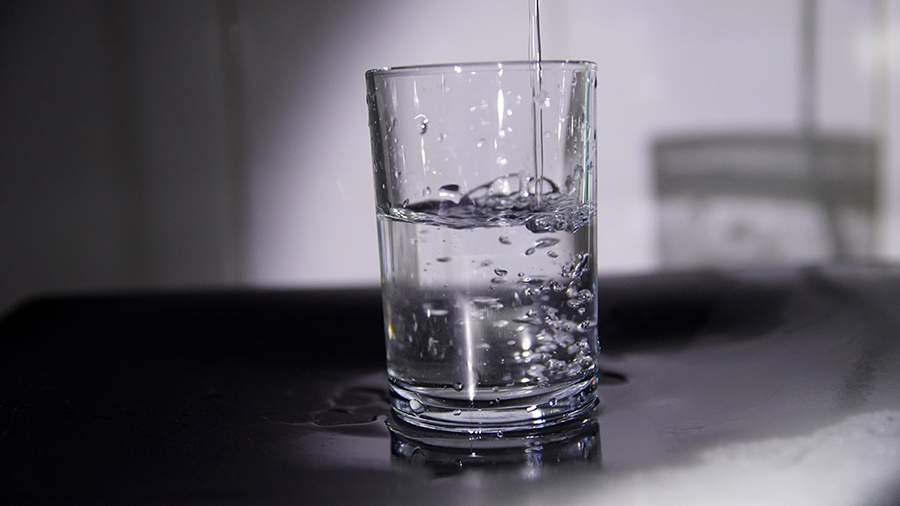The doctor gave advice on how to improve the condition when overeating

Overeating has become a common problem in modern life — people eat on the go, at the computer, while watching the tape. This approach to nutrition disrupts the digestive system, impairs the absorption of nutrients and eventually leads to weight gain. Vera Serezhina, an expert doctor at the LabQuest medical company, told Izvestia on March 22 how to cope with the effects of overeating and not harm the body.
"If overeating happened once, for example, on a holiday or on a weekend, do not panic. The body can be helped to recover without severe restrictions. The first step is to drink one or two glasses of clean water without gas or unsweetened tea. This will help to facilitate digestion and speed up the elimination of excess. At the same time, it is not necessary to take enzyme preparations to maintain the functioning of the gastrointestinal tract and digest excess food, since they inhibit the production of their own enzymes, weaning the body to work," the expert explained.
According to her, it is a bad idea to go to rest after a heavy meal, because because of this, you can get gastric acid into the esophagus and provoke reflux esophagitis. It's better to go out for a walk. A rhythmic walk for 30-40 minutes will improve your well-being by activating intracellular lipases— enzymes that break down fat.
"If you still feel heavy in the morning, you should arrange a light unloading day. This is not starvation, but a gentle diet that helps the digestive system to "rest." Low-fat fermented dairy products, such as cottage cheese and kefir, fresh vegetables and herbs, and light leafy salads without fatty sauces and mayonnaise can form the basis of nutrition on such days. You can add a little vegetable oil, vegetable strips of celery or carrots, low—fat boiled or steamed fish, as well as baked apples without adding honey and nuts," Serezhina advised.
At the same time, you need to drink more water or smoothies made from green vegetables and reduce the volume of portions. However, a fasting day should not turn into a punishment. Also, do not think that the less you eat, the faster you will be able to lose weight. Such thinking often leads to breakdowns and the formation of unhealthy eating behavior, the doctor said.
"It's worth acting in a completely different way if overeating is not episodic, but systematic. Especially if it is accompanied by weight gain, guilt, and attempts to compensate for excess food with even more calories. If overeating is associated with emotional overload, stress at work, family conflicts or chronic fatigue, then this is already called compulsive overeating," Seryozhina drew attention.
The expert explained that in such cases it is important not only to change the diet, but also to work with the root cause. According to her, the best option would be to contact a nutritionist and a psychologist to analyze eating behavior and emotional background, and then together develop a safe strategy to solve the problem.
If overeating has become part of a lifestyle and its consequences have resulted in overweight or obesity, an integrated approach is needed. It is worth undergoing a medical examination, including laboratory diagnostics, to find out what exactly provokes this behavior: hormonal disorders, problems with blood sugar levels, chronic inflammation, deficiency of vitamins and trace elements, such as vitamin D and magnesium.
In order to comfortably and safely lose weight, it is important not just to reduce the amount of food, but to change the structure of nutrition, to make the diet more diverse, the doctor said.
"Together with a specialist, you can build a diet so that it is satisfying, but less high-calorie. This is achieved by reducing the energy density of meals — more vegetables, protein, fiber, and water are added to the diet, while fatty, sweet, and processed foods are gradually eliminated. Such a "voluminous" meal allows you to feel full without overloading the body and provoking a new breakdown. At the same time, it is important to exclude food intolerances using a special blood test for 286 food molecules," Seryozhina added.
Earlier, on January 29, Natia Chekhoeva, a gastroenterologist and endoscopist at the Gastro Clinic, told Izvestia that the systematic consumption of excessive calories inevitably overloads the body. This not only increases body weight, but also puts a strain on internal organs, including the heart, liver, and pancreas.
Переведено сервисом «Яндекс Переводчик»
